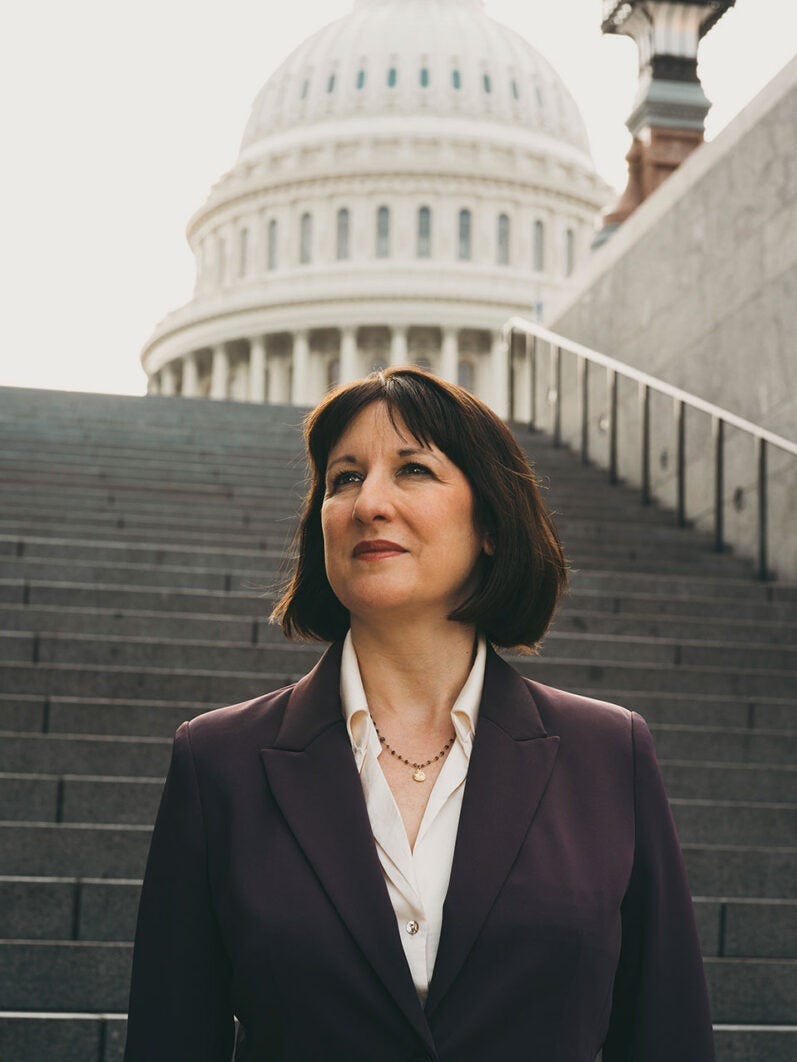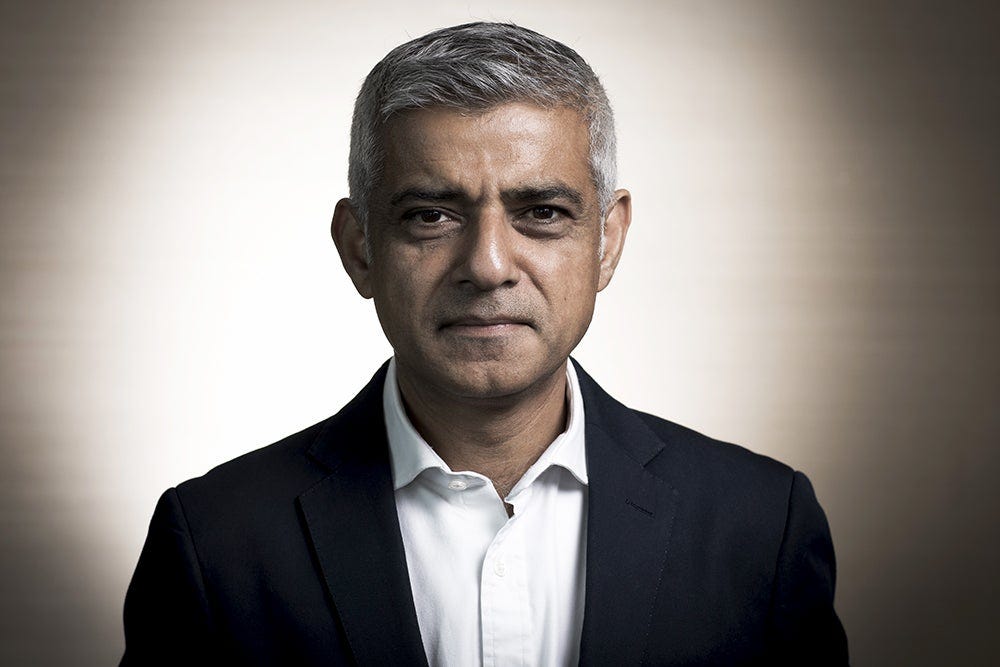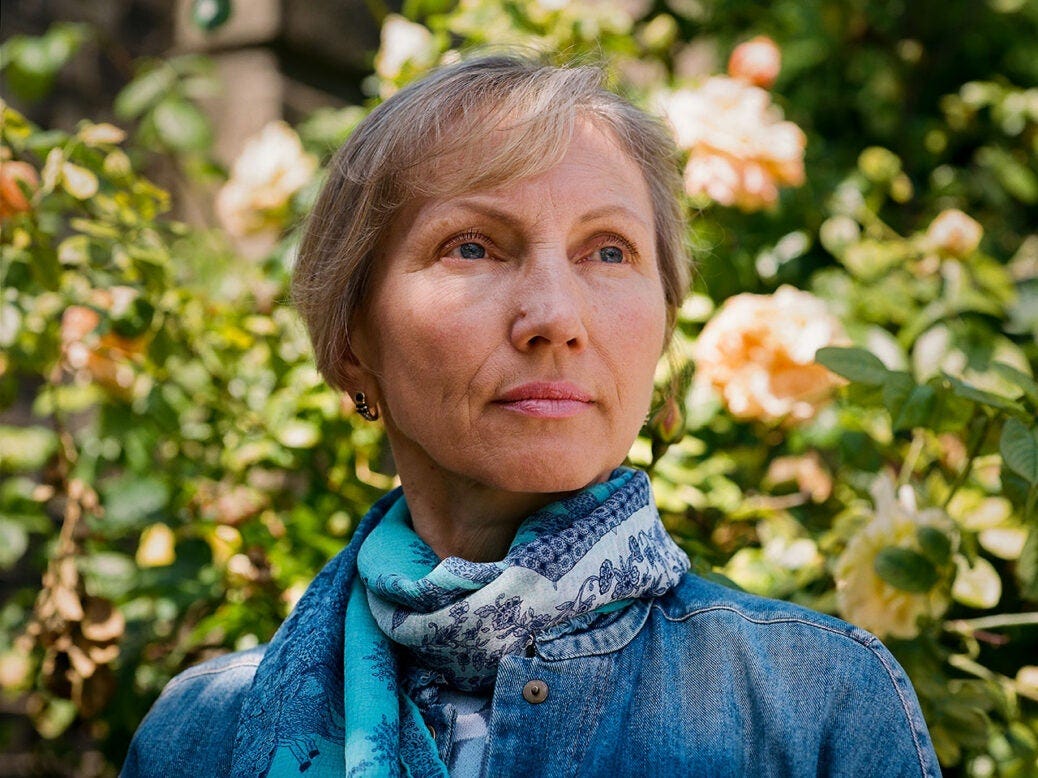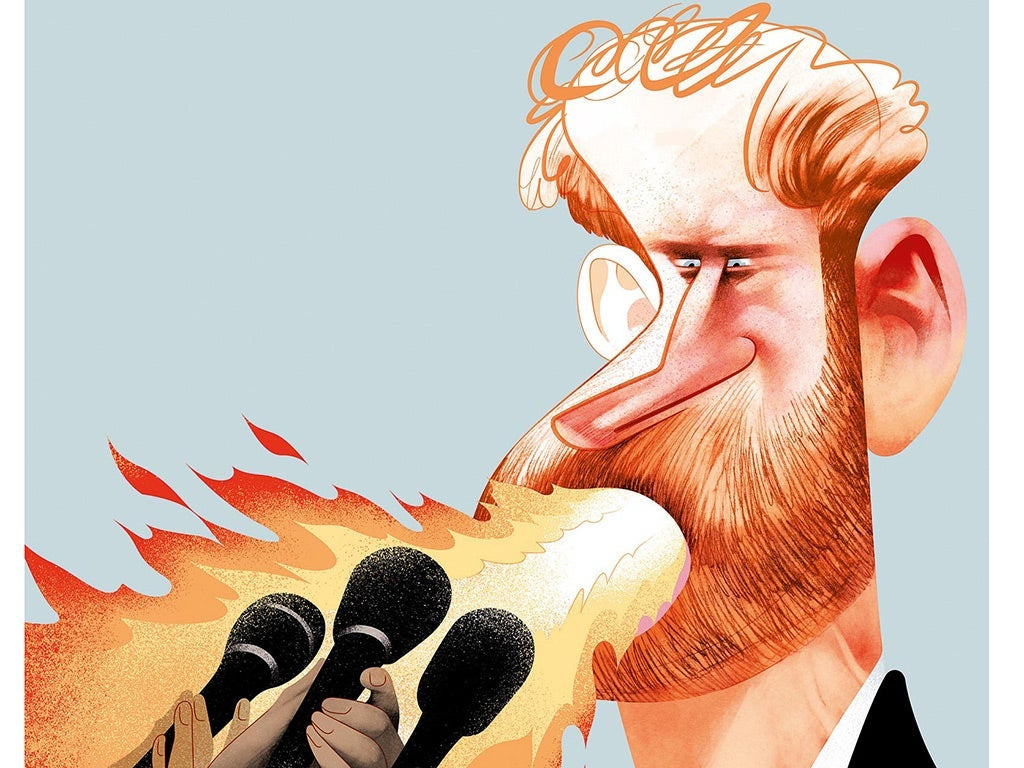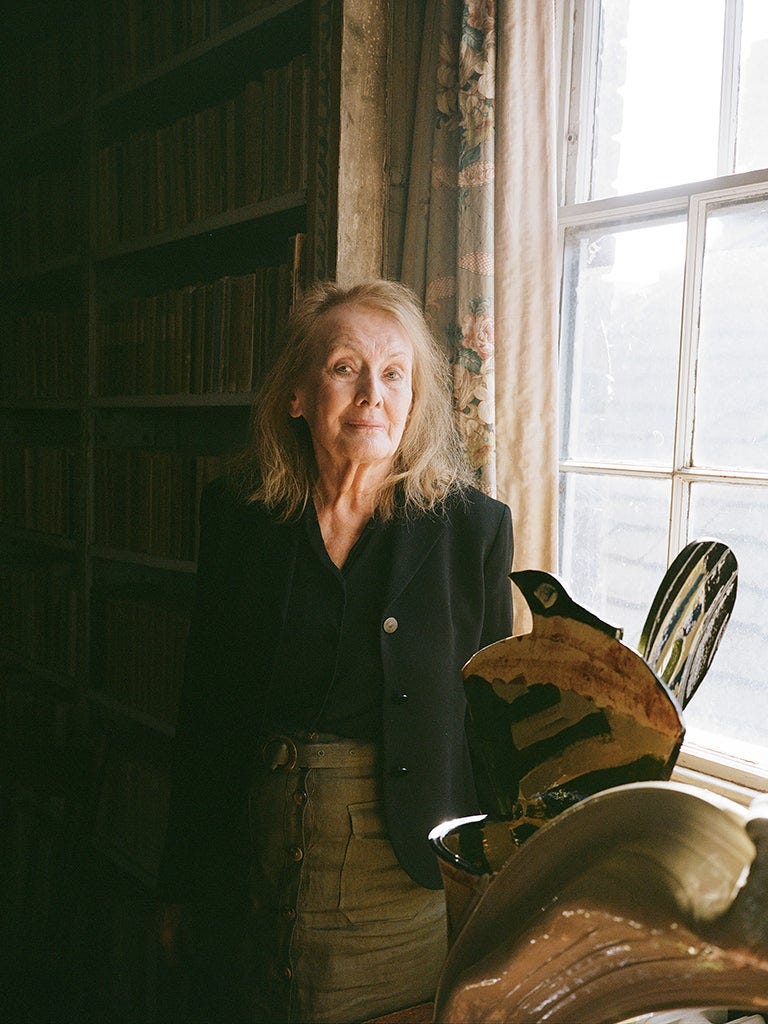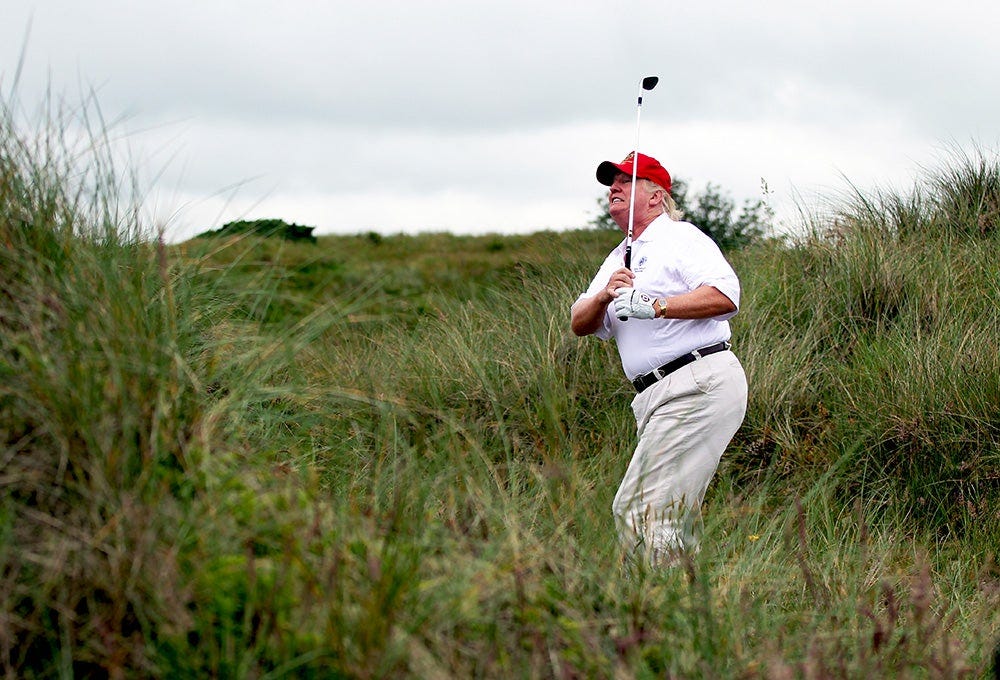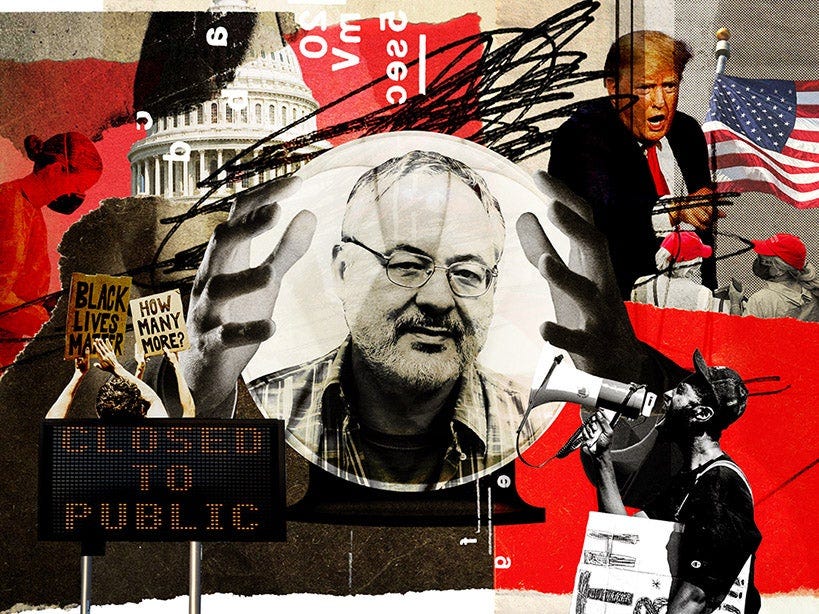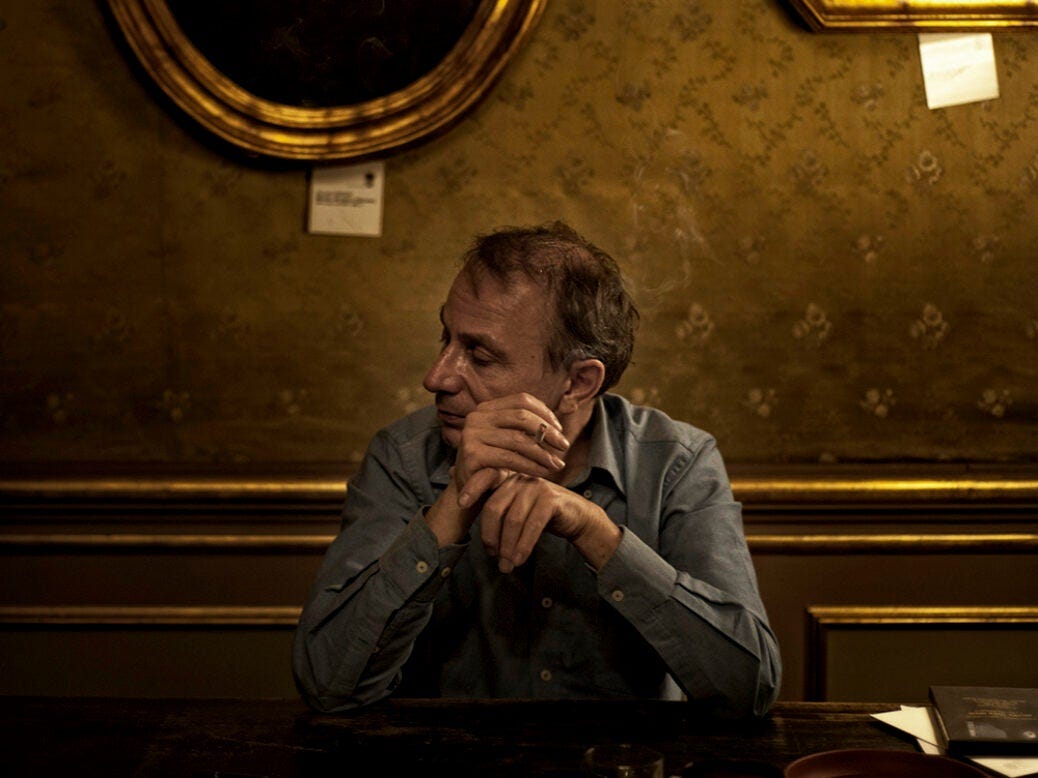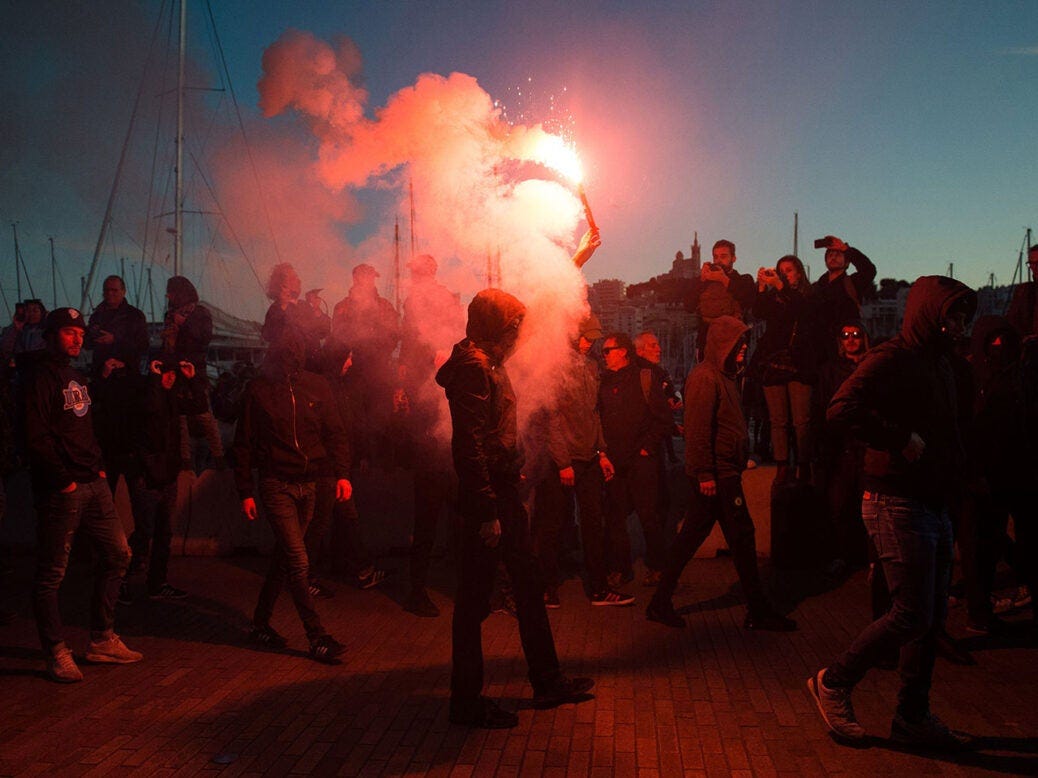The Saturday Read: All flesh is grass
Inside: A profile, three interviews, two books, and a few reports.
Good morning, and welcome to the Saturday Read, the New Statesman’s weekly guide to the best writing on ideas, politics, books and culture. This is Harry. Will, who writes this email with me, has also written today’s sign-off.
I spent much of 2022 in Westminster watching Boris Johnson lose power week by week. On the day we discovered that his premiership would finally fall I was sitting in a committee room with him, watching him fend off MPs who knew his time was over before he did.
Right at the end of the questioning, he was asked if he would accept that “in the end we’re all dispensable”. “All flesh is grass, Bernard,” he replied. The next morning he resigned as prime minister to avoid being forced out. Yesterday he resigned again, this time as an MP, to escape being thrown out in a by-election.
If the pieces below intrigue, perhaps you’d like to try a trial subscription to the NS. Read three free articles after registering on our site. A digital subscription is just 95p a week. If you are already a subscriber, thank you for reading us. Let’s get to it.
1—“Would Rachel Reeves one day like to be known as the Iron Chancellor?”
Here is the definitive profile of Rachel Reeves, who may soon be Britain’s first female chancellor of the Exchequer, by Jason Cowley, our editor. He accompanied Reeves on her recent visit to America, and discovered two competing personalities within the Labour frontbencher. Reeves has just rowed back on Labour’s commitment to spend £28bn a year on its “green prosperity plan”, which Jason foreshadows in the piece.
You could say there are two Rachel Reeves. Rachel 1 is the strategically cautious politician we know from her many public appearances and statements. In private, she is different: warmer and more open – and more vulnerable than she would have us believe. Friends and colleagues mention her thoughtfulness and courtesy, the handwritten thank-you notes she sends… The technocratic vocabulary, the robotic delivery, the Gradgrindian discipline, the bobbed, helmet-like hair, the reserve – this is her armour and her defence. “Like many female politicians she wears many masks – through necessity,” one aide said. “The most straightforward I have seen her is when she is talking about her children.”
Rachel 2 has a hinterland. She is seriously interested in ideas. She reads widely and publishes books. She discusses pieces she’s read in the New Statesman – while joking about Nicholas Lezard’s column (her husband is a Lezard fan). She talks animatedly about the female economists who have inspired her – Joan Robinson, Mary Paley Marshall, and, among her contemporaries, Mariana Mazzucato, Diane Coyle and Janet Yellen.
2—“People were lied to, and they believed the lies.”
Freddie Hayward, our political correspondent, interviews Sadiq Khan, the Mayor of London since 2016. You might think you have read, or at least seen, plenty of interviews with Khan, but Freddie has come away with something fresh. The fundamental question here is Brexit – who was right? Who was wrong? Who has learnt from what happened seven years ago?
Strangely, Sadiq Khan sounded like Liz Truss defending the abolition of the top rate of tax. The Mayor of London was speaking to me in a wood-panelled committee room with a view of Royal Victoria Dock on the ground floor of London’s City Hall. He was charming, plying compliments and asking questions. A Garmin watch was strapped to his wrist. His hair was carefully combed. Dark bags spread from his eyelids to his cheek bones. We were discussing levelling up.
Freddie writes Morning Call, our daily political email, through much of the week:
3—“Marina Litvinenko has seen her husband’s murder played out on screen and stage more than half a dozen times.”
This is really quite the interview with Marina Litvinenko, by Megan Gibson, our international editor. In 2016 an inquest concluded that Litvinenko’s husband, Alexander, a former KGB agent turned dissident, had been killed by poisoning in London in 2006, probably on the orders of Vladimir Putin.
Marina met Alexander in 1993 in Moscow at a party for her 31st birthday. She was a dancer and he was an agent with the FSB, the successor to the KGB. He was married, but “it was just like we found each other”, she said. They had a son, Anatoly, in 1994 and – after Alexander divorced – married later that year.
I asked Litvinenko if she holds a particular image of her husband in mind. She considered the question. “I’d say that if it was a painting, it would be a watercolour,” she said, her hand sweeping imaginary brushstrokes in the air. “Because it is very gentle. Even though Sasha was a really strong person, he was very soft.”
4—“A vast inky wave of newsprint, pushing Harry down, suffocating him.”
Will was at the High Court in London this week to watch Prince Harry’s ill-advised mission to bring down Britain’s tabloid media.
What was on display in the Rolls Building was bigger than the prince. Here was the long, withdrawing backwash of an earlier, crueller country. Nineties and Noughties tits-out, red-carpet circus, filthy rich, greedy, horny, vulgar Britain, and all the journalistic flotsam that avidly fed on its treasured rubbish. In his claims, Harry was asking us to step back in time with him, to judge the ghostly bylines and spectral paparazzi shots of a long-vanished era. The papers’ claws were no longer as sharp as they were back then – the media had changed since the glory days of the red-tops. But Harry had not. The number one reason usually given for Harry’s war on journalism was said to be “reforming the press”. But had reform, in this case, started to look more like revenge?
5—“Everyone in France takes it as a given that a great writer is a male writer.”
Annie Ernaux rarely comes to England. When she does it’s an event. Ellen Peirson-Hagger interviewed the Nobel laureate and the resulting conversation takes in everything from history to class and the role of shame in Ernaux’s writing.
“We avoid dwelling on the thing that caused the feeling of shame,” she told me, “but writing, in confronting shame, is a means of freeing ourselves from it. In turning it into a literary object you share the feeling with your readers, which carries with it the possibility of affinity, of identification, which are both liberating.”
In A Man’s Place, a portrait of her father, Ernaux perceives her university education as a betrayal of her class. The international literary success she has experienced since has only led her further from her roots. But she has always insisted on maintaining a link to her class through her straightforward writing style. She wants everyone to be able to understand her books.
From our partners
BP’s transformation is underway. While today we’re mostly in oil & gas, we’ve increased global investment into our lower carbon & other transition businesses from around 3% in 2019 to around 30% last year. From offshore wind to EV charging to oil & gas, see how we're putting plans into action.
6—“At least with darts you get to have a knees-up while you’re watching overweight men launch a sharp object towards a painfully small target.”
Kara Kennedy ventured over to Virginia this week, as the world of professional golf was shaken by the news that a merger was being announced between the PGA Tour and the Saudi Arabian-backed LIV Golf. At the Trump National Golf Club, Kennedy watched the consummation of this strange marriage between the Saudis and the Trumpists.
As soon as you walked into the Trump club grounds, the music was pumping and multiple cocktails flowed from stands that appeared to outnumber water stations four to one. There were flags in fluorescent script that said “Golf But Louder”, and “Don’t Blink”, which, while I’m not really sure what they meant, reminded me of the time that I went to crazy golf in Magaluf. Except here there were actual professional golfers around like Brooks Koepka (who is coming off the fifth major championship of his career), Mito Pereira and Branden Grace, as well as the former president of the United States. I asked some Trump fans if they’ve been to a PGA tournament before, and how it was different from the show being put on here by LIV. They had, and the difference was “you’d never hear thumping music like this. Plus Don’s here, so that’s fun.”
7—“This is TED-Talk-lit that so vastly over-promises that the under-delivery is baked in from the start.”
William Davis skewers Peter Turchin’s new book, End Times. Turchin is the “quant historian”: he has built computer models that claim to weigh the fundamentals of history and predict the future. Davies finds his conclusions remarkably bare.
Spoiler alert: MPF’s big reveal is disappointing. “Elite over-production” and “popular immiseration” will continue through the “turbulent Twenties”, producing greater and greater violence. Yet the effect of this violence is, counter-intuitively, to turn “radicals” into “moderates”, until the country calms down for 40 years before erupting again in 2070. The problem, Turchin explains, and the reason why society will become unstable every 50 years is the “wealth pump”, which continues to divert money from the poor to the rich. Only with the kinds of liberal reforms witnessed in Britain in the late 19th century, or the US after 1929, will the “wealth pump” be switched off and political instability put to rest.
8—“Be abject and you will be true. Remember, basically you’re already dead.”
It’s been a weird year for Michel Houellebecq, which has so far included starring (by accident, he says) in a Dutch arthouse porn film. David Sexton reviews Houellebecq’s own account of the last few months.
At the beginning of October last year, a “pseudo-artist”, Stefan Ruitenbeek, whom Houellebecq now calls “the Cockroach”, emailed him saying he would be coming to Paris with a young philosophy student called Jini van Rooijen (now dubbed “the Sow”), who was a fan of his works and eager to participate with him in a pornographic video. Houellebecq fell for this (he blames authorial vanity) and Ruitenbeek filmed a two-hour session with Houellebecq, his third wife Qianyum Lysis Li, 20 years his junior, and the Sow, although Houellebecq was disappointed by her performance.
9—“Whoever sows misery, reaps a f**k up.”
Andrew Hussey reports from Marseille, the “lawless metropolis” beloved by Emmanuel Macron. “I’m in love with Marseille,” Macron has said of the city, “because I love tragic, Mediterranean cities. Everything is at the same time complex but possible.”
La Joliette is the former docklands of Marseille, recently redesigned as a new arts and business area at an estimated cost of €7bn. Since 2013, when it was crowned as a European Capital of Culture, Marseille has been on a mission to rebrand itself as the “Barcelona of France”: a second city with its own unique and vibrant culture centred on art, football, tourism and good weather. The rejuvenation of La Joliette, with its shiny new trams and shopping malls, has been a key part of the project. But for all the enthusiasm and money spent on rebranding it, La Joliette is a singularly unattractive part of Marseille.
Best of the Rest
New York magazine: Gatecrashing Kissinger’s 100th birthday
FT: An investigation into how a hedge-fund titan evaded sexual assault allegations for decades
Politico: The New Right’s man in the ivory tower. Should you be worried if the Right’s most prominent philosopher just wrote a book called ‘Regime Change’?
John Ganz: Blood and the machine
Marc Andreessen: Why AI will save the world. The utopia described here sounds unpleasant.
Michael Sheen: Only I’m allowed to pretend to be Welsh
Sarah Arkebauer: How to girlboss a fall from grace
A virgin birth in Costa Rica. Unlikely to be the foundation of a new religion but you never know.
Dying on your feet. The best essay published outside of the NS this week.
From our partners
As interest rates rise again and food-price inflation is at a 45-year high, people are continuing to feel the squeeze on their living standards. But these costs are not felt equally; disparities across income, employment, health and housing are all driving regional inequalities. PwC has released an annual Good Growth for Cities Index, which ranks large UK cities across 12 economic success measures. Read more here.
Elsewhere on the NS
William Turvill has taken a look at who Fleet Street might back at the next election, with thoughts from Alastair Campbell, David Yelland, Simon Jenkins, Ben Nunn and more.
Freddie this week also profiled Oliver Dowden, the self-proclaimed “normal man” who has been at the heart of Tory power for the best part of the last decade.
Enjoying food, writes Amelia Tait, is “an accomplishment for a former anorexic”. Women, she argues, are not what they eat.
Only John Gray could demonstrate how a Danish writer’s novella (first published in 1967) explains our own crumbling way of life today.
Fransisco Garcia takes us inside the cult world of the Scottish author David Keenan.
Julia Bell is not buying in to hagiographic accounts of Martin Amis’s life and work.
Kate Mossman wondered what Beyoncé is actually like, as the superstar toured the UK dressed as a “disco cyborg”.
And with that…
On Thursday evening I was at the Guildhall in London to watch Rory Stewart give the annual Sir Thomas Gresham lecture. The majority of the audience looked like retirees. Perhaps that’s who is out there, with endless time to waste, listening to podcasts. Stewart lectured without notes, one hand in his left pocket, 50 years old but somehow boyish. He made, via Aristotle, the case for a politics of the “golden mean”. It was a slyly conservative, high-concept appeal to the centre ground, and one that was grounded in hope, rather than cruelty.
The word “hope” is difficult to use in a political context after the last 15 years in Britain. Stewart knew this, but threw it out there anyway. He might have lost the power to govern anything after he left the Conservative Party in 2019, but he had gained this. A large, devoted audience. And the freedom to say sweet political nothings that wouldn’t move the dial at a local, let alone general, election.
Thank you for reading. Don’t miss out – subscribe to the New Statesman and stay up to date with everything you need: from news and analysis to comment and criticism.
Whether you’re looking for a sharp blog or a finely written feature, the New Statesman has you covered. Have a good week, and catch you next Saturday.
Thanks to Chris Bourn.








